South Korea’s new ‘president for all’ inherits a deeply divided nation
While Lee Jae-myung’s supporters dream of justice and rebuilding, opponents fear unchecked power – despite his pledges of unity
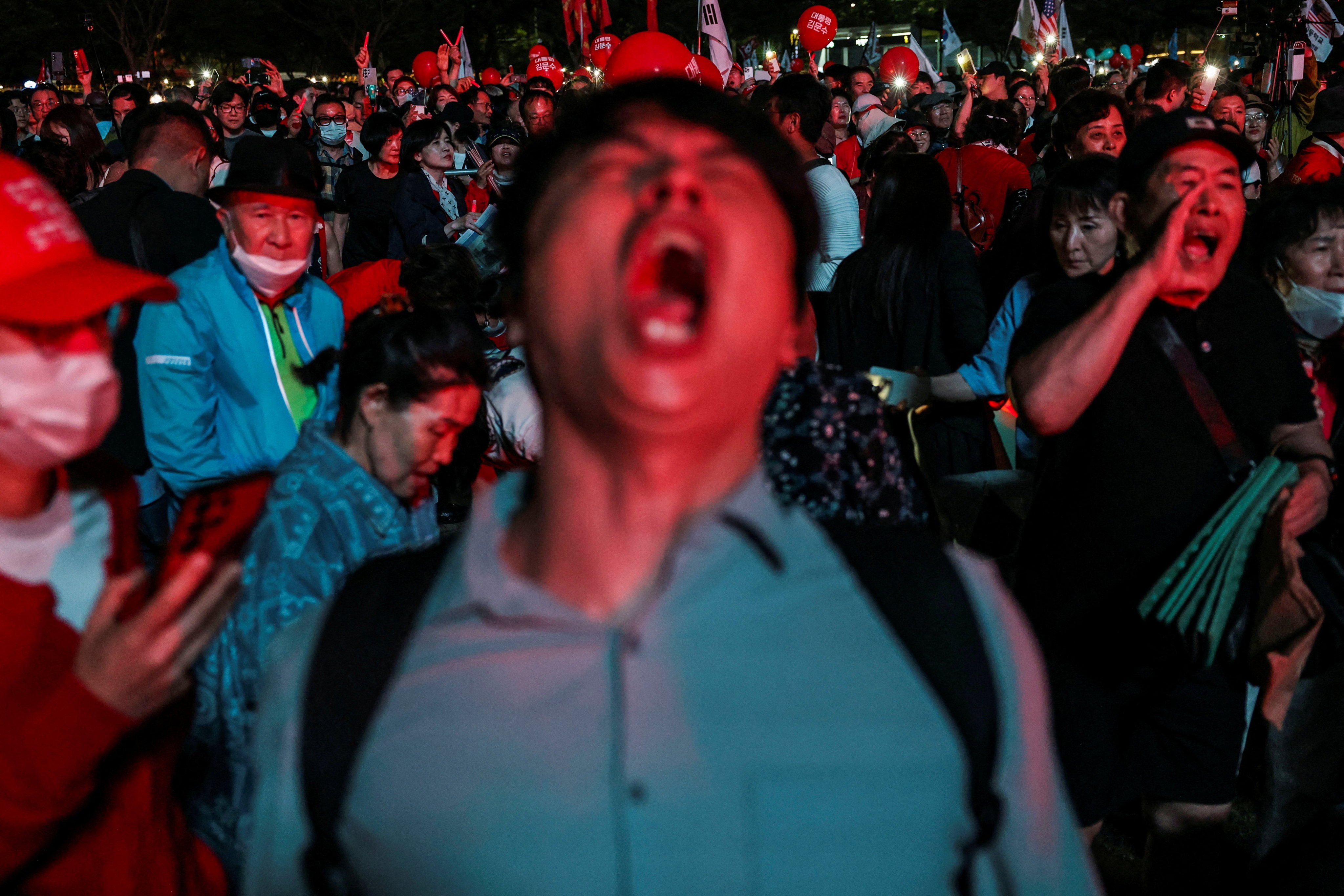
When Democratic Party candidate Lee Jae-myung emerged victorious early on Wednesday in South Korea’s snap presidential election, elation swept through his supporters massed outside the National Assembly. Strobe lights lit the night sky, celebratory music thundered from speakers and the crowd erupted into cheers and embraces – some dissolving into tears of relief.
Just a few hundred metres away, however, the atmosphere outside the People Power Party’s (PPP) headquarters could not have been more different. There, a smaller group of far-right demonstrators clashed with police, their shouts of “rigged elections” and “resist the results” ringing out into the night. Some visibly shook with fury.
“The PPP has surrendered to a rigged election. I can’t believe they’ve sold off the country,” said a 40-year-old Seoul resident who voted for PPP candidate Kim Moon-soo.
This polarisation mirrors a deeper societal schism that now runs through South Korea’s families, workplaces and online communities.
“When I told my parents I voted for Lee Jae-myung, they called me the shame of Busan,” said Kim Ha-ru, a 20-year-old student. The port city, South Korea’s second largest, has long been a conservative stronghold.
“I told them they were backing a party that tried to stage a coup. I can’t understand them at all.”
Deep political divides
Analysts say the election has laid bare the nation’s hardened divides, which extend across generations, regions and socioeconomic lines.
“This result clearly illustrates the structural fault lines in South Korean society,” said Lee Jae-mook, a political-science professor at Hankuk University of Foreign Studies. “It’s not just ideological. It’s regional, generational and class-based.”
He said the partisan divide was evident in the PPP’s vote share, which was over 41 per cent – only 7 percentage points lower than the former ruling party’s share in the last election in 2022, despite months of crisis stemming from ex-president Yoon Suk-yeol’s declaration of martial law.
Outside the National Assembly, many Lee Jae-myung supporters voiced hopes that his administration would not only seek justice over Yoon’s controversial martial law decree, but also begin to heal the country’s political wounds.
“I’m so happy, I’m speechless,” said Park Jin-wook, 35. “What is important for me is to bridge the divided society. [But also,] those responsible for the December 3 insurrection must be punished and the PPP should be disbanded.”
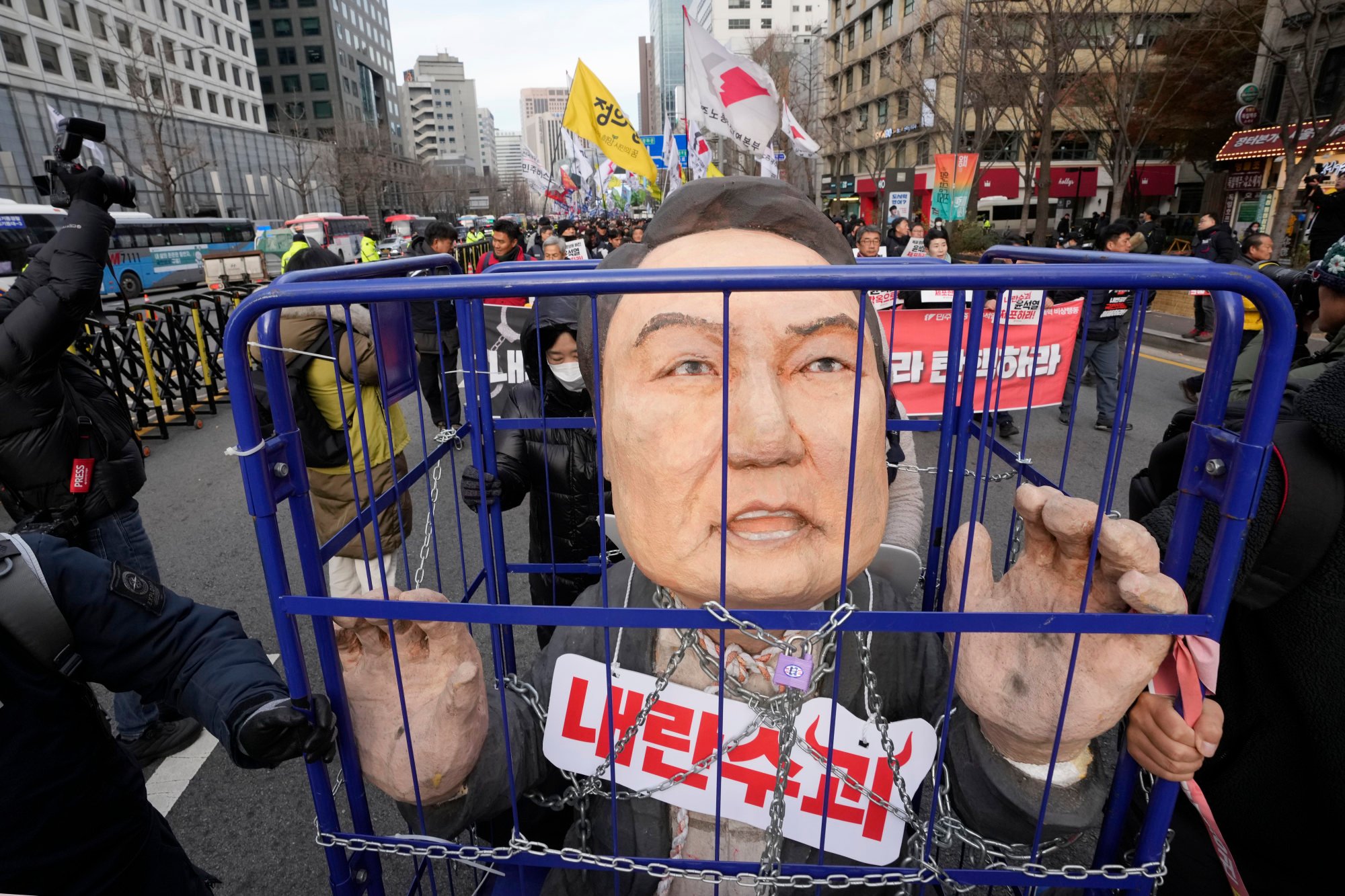
Yoon was impeached late last year over his attempt to declare martial law, and the Constitutional Court removed him from office in April. He has also been charged with orchestrating an attempted insurrection, though the court has yet to deliver a verdict in his criminal trial.
“We’re a strong democracy because we, the people, stopped a self-coup,” said Yoo Soo-jeong, 52. “Lee Jae-myung is the right person to create a government that includes all Koreans.”
For other supporters, Lee’s appeal was more rooted in policy.
“I believe Lee will be better than Yoon in everything: politics, the economy and even culture,” said 72-year-old retiree Hong Byung-hwan. “Yoon damaged every part of the country. It’s time to rebuild.”
“Lee will know how to handle President Trump’s trade pressure and stabilise inflation,” added Cho Yoon-jae, 20. “He even has answers for the climate crisis.”
Despite the angry displays from fringe elements outside PPP headquarters, most Kim Moon-soo supporters appeared to accept the outcome with resignation – perhaps having anticipated it.
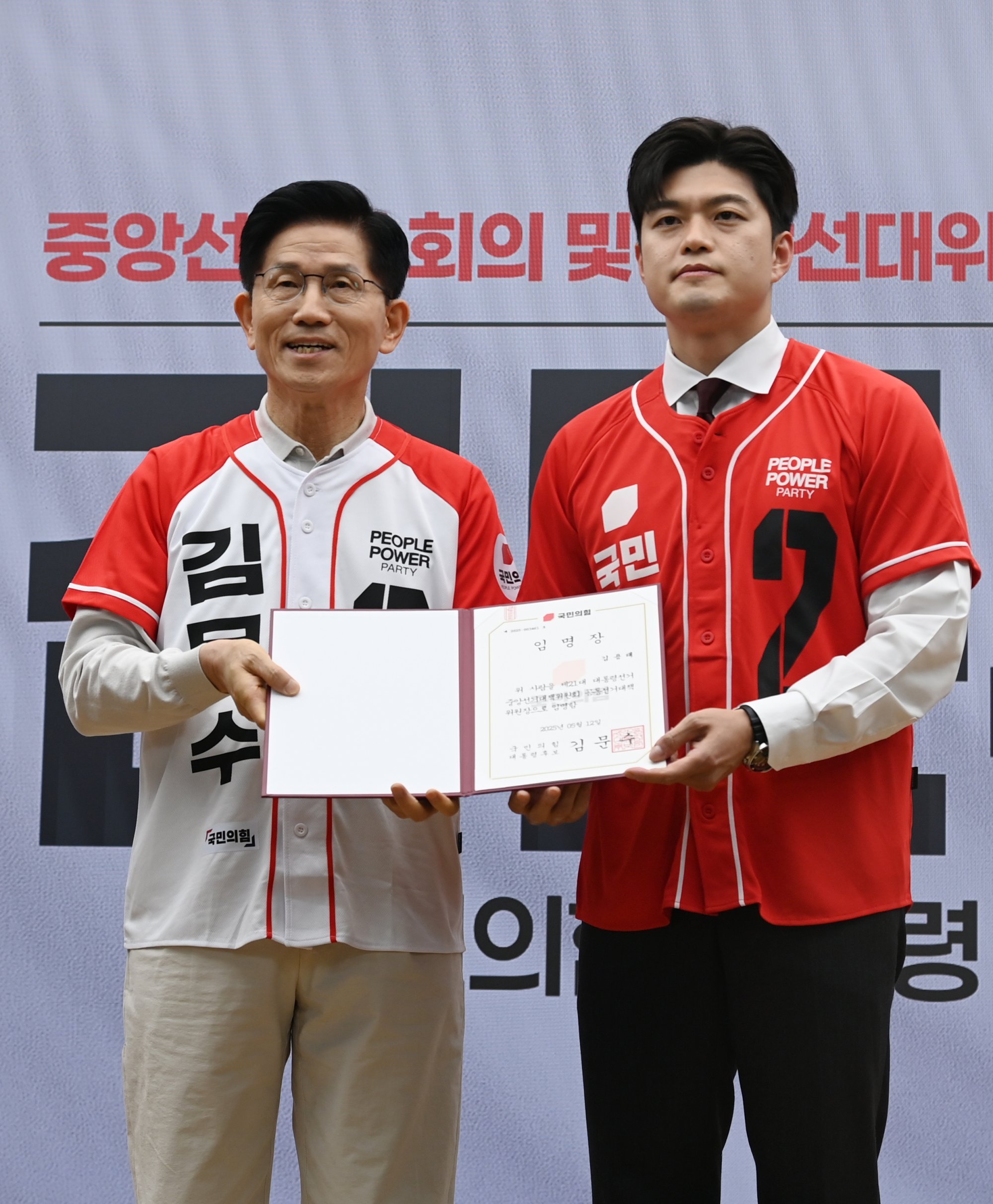
PPP interim leader Kim Yong-tae had, in the lead-up to the election, called for a “big tent” coalition, urging all anti-Lee factions to unite behind the party’s candidate. Though this failed to secure the presidency, it did create an unusually broad base of support.
Michelle Kim, 25, a university student who previously voted for a minor left-wing candidate in 2022, said she supported Kim Moon-soo this time out of concern over Lee’s leadership style.
“I voted for Kim Moon-soo because I do not like Lee Jae-myung,” she said. “Lee Jae-myung wants to control the judiciary. He is overreaching.”
The PPP has raised similar concerns that the Democratic Party’s planned judicial overhaul – which would expand the Supreme Court and introduce constitutional complaints to challenge its rulings – is intended to shield Lee.
Unresolved court cases against South Korea’s new president include charges related to corruption, alleged violations of election laws and subornation of perjury, which means he is accused of persuading someone to lie under oath.
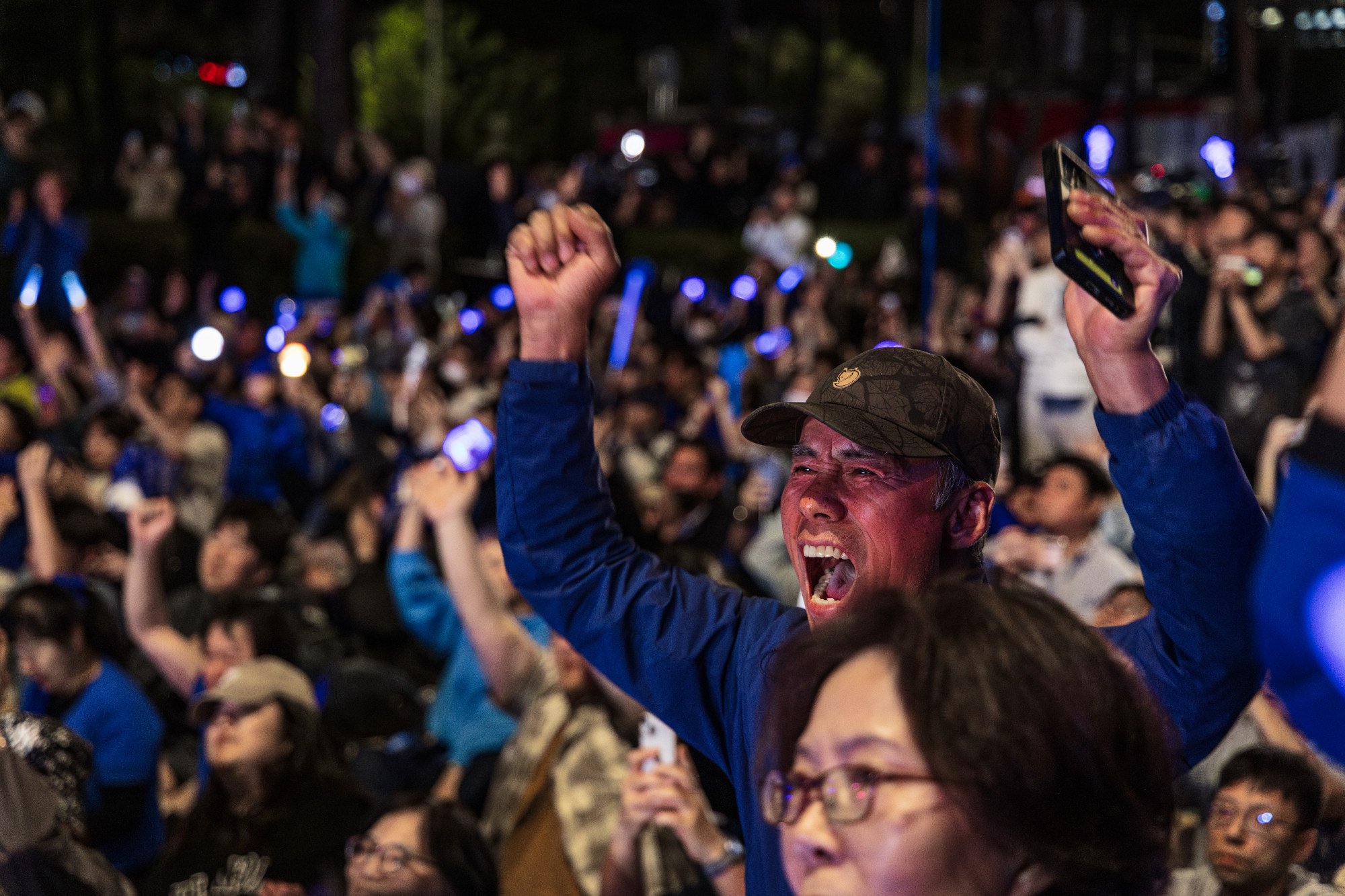
“I think the president should be someone morally sound,” Michelle Kim added.
Other critics drew parallels between Lee and ousted president Yoon.
“I didn’t want one party to have unchecked power,” said 27-year-old graduate student David Park. “Lee is like Yoon – they both dream of strong centralised authority.”
With Lee’s Democratic Party holding a legislative majority, voters like Kim and Park worry that its judicial reforms would place all three branches of government – executive, legislative and judicial — under his control.
Such anxieties have been echoed by prominent moderates, including former prime minister Lee Nak-yon, an ex-Democratic lawmaker who publicly endorsed Kim Min-soo and accused Lee Jae-myung of authoritarian leanings.
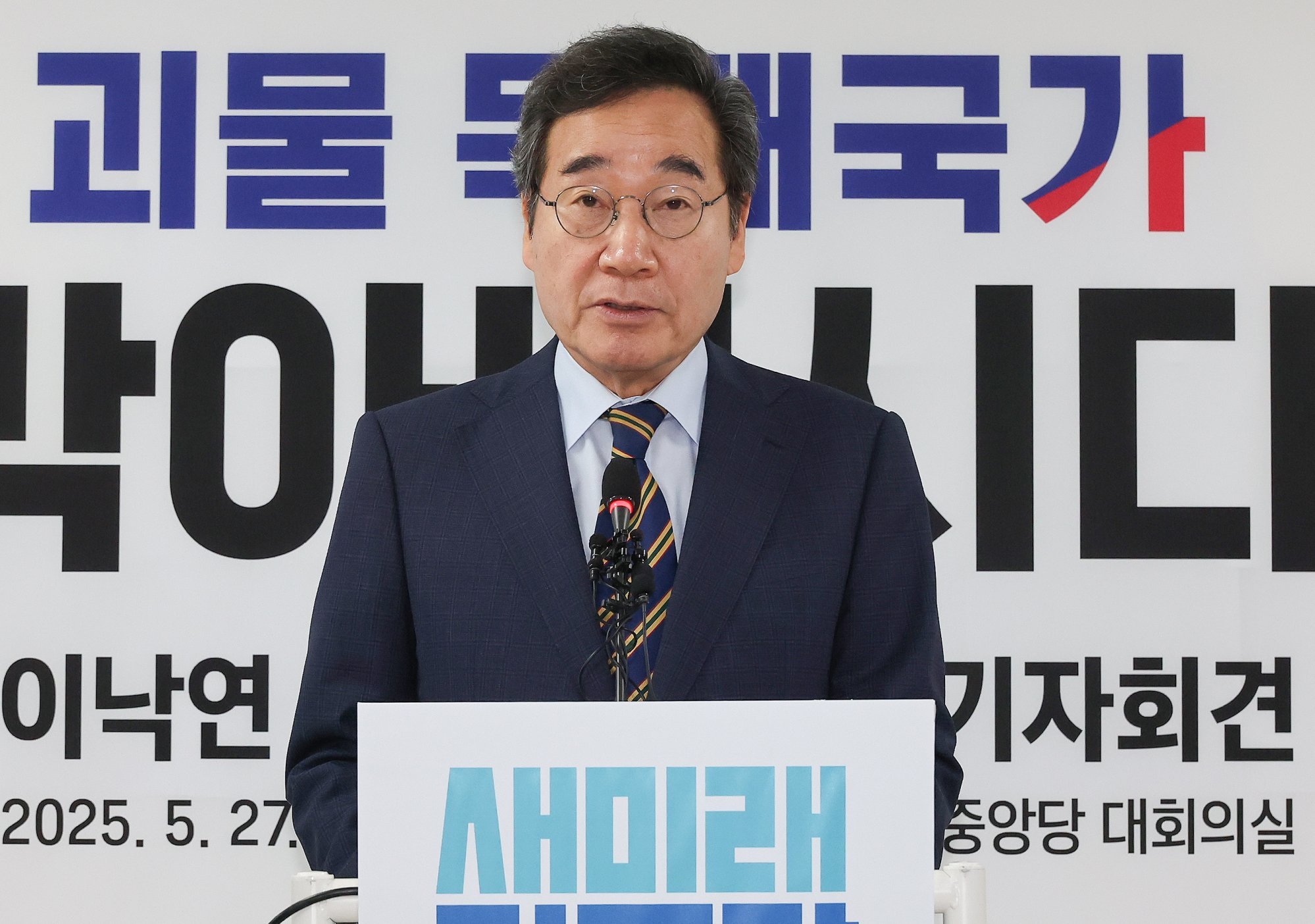
“The insurrection is being resolved, but [Lee’s] dictatorship is in progress,” he said in a radio interview on Monday.
Among more radical Kim supporters, the rhetoric was darker still.
Jeong Young-gi, 53, said he started believing conspiracy theories about election fraud after Yoon’s martial law decree.
“Anti-state forces are everywhere. The people need to wake up,” he said. “Getting elected is not the end. We must investigate this election too.”
Can South Korea heal?
In his inaugural address on Wednesday, Lee declared his intention to be a unifying leader.
“Since being a president means widely uniting the people, regardless of who they voted for in this election, I will become a ‘president for all’, embracing and serving every citizen,” he said.
But for many, polarisation – not policy – defined this election and most remain sceptical that Lee can bridge the divide.
“We lack leadership that can bridge the deepening divides between generations, regions and genders,” said Koo Bon-seong, 28, a conservative voter. “And this election didn’t change that.”
South Korea’s two main parties have come to loathe each other so completely that the political process has become paralysedLee Jae-mook, political scientist
Political scientist Lee Jae-mook agreed, warning that the president’s next steps could deepen the rift if handled incautiously.
“He will most likely go on to hold the martial law perpetrators accountable,” Lee said. “[The PPP] will frame this as political revenge, escalating conflict.”
Lee compared the current gridlock to the political impasse in the United States.
“South Korea’s two main parties have come to loathe each other so completely that the political process has become paralysed,” the professor said. “In some ways, the divide here has surpassed that in the US.”
The successive impeachment of conservative presidents has led to dysfunction in the National Assembly, South Korea’s legislature, with cross-party cooperation all but vanished.
Still, Professor Lee insisted that polarisation could not be healed by institutional reform alone.
“It’s also about civic culture,” he said. “We need a social norm of tolerance and respect, not one where hatred dominates public discourse.”